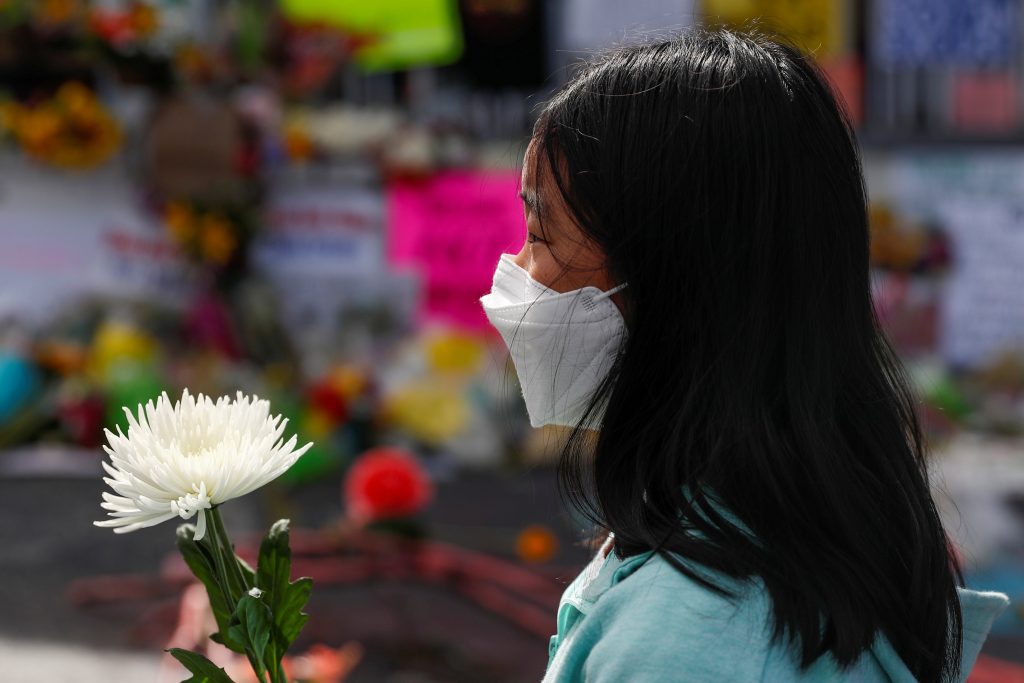This Holy Week, I’ve been thinking about Robert Aaron Long, the accused killer of eight people, including six Asian women, in Georgia.
Long was raised Christian in a strict Baptist church. Yet something in his life was wildly out of control, apparently the product of a volatile mixture of porn addiction, guilt, and self-loathing. He was obsessed with his own sinfulness, and he is alleged to have chosen to kill what he believed was both the object and cause of his temptation, women working in massage parlors.
In response, the church he attended issued a statement that his murderous actions “directly contradict his own confession of faith in Jesus and the gospel,” and as a result, they removed him from the congregation because “we can no longer affirm that he is truly a regenerate believer in Jesus Christ.”
I think of Long because when we say that Jesus Christ died for sinners, what we mean is that he died for people like him. When we say Jesus ate with sinners and came to save sinners, we mean not just nice people who have a few flaws, the way we imagine ourselves to be, but people who are not easy to love, people who have done heinous things, not just lost sheep but lost souls.
This is the radical nature of God’s love for us. He died for the worst of us. He died despite the worst in us. He died that we all may be redeemed. He died for the men and women on death row where Long may one day find himself — as well for as their victims: the human traffickers as well as the trafficked, the beaten and the beaters, the haters as well as those they hate.
St. Paul speaks with experience on this matter:
“For Christ, while we were still helpless, yet died at the appointed time for the ungodly. Indeed, only with difficulty does one die for a just person, though perhaps for a good person one might even find courage to die. But God proves his love for us in that while we were still sinners Christ died for us” (Romans 5: 6–8).
This radical message of love, when we think about it, is a hard message. To be honest, I feel a certain sympathy for the decision of his Baptist church to expel him for the horrors he has done, for the sins he has committed. It can be harder to believe that Long is the lost sheep Jesus is determined to find. And yet lost he is, and God still seeks him.
Jesus died to redeem all of us. He died for us while we were still sinners. He didn’t die for us after we had promised to be better, after we had prayed all our prayers and given all our alms. He had not received any cross-our-heart-and-hope-to-die assurance from us that we would unfailingly walk the straight and narrow. It was a supreme act of self-giving love, and when I think about it in these terms, I am bowed low.
And we are still sinners now. Despite all of our blessings, despite our protestations of faith, despite the fact we may show up for Mass every week, we are still sinners. Sometimes we evade this truth — “O God, I thank you that I am not like the rest of humanity — greedy, dishonest, adulterous. …” (Luke 18:11).
Sometimes we cut ourselves slack — we aren’t as bad as everyone else. We’re basically good folks who make a few mistakes. And if we see ourselves in the bright light of day, sometimes we are repelled, holding ourselves in contempt. We may even believe we are beyond God’s mercy, and in our pride, deem ourselves irredeemable. That may be the hell that Long finds himself in now.
It is why I am thinking about Long this Easter season, because it underscores our own “amazing grace,” that God wants to save a wretch like him, and like me. And when I venerate the cross, when I hear the plaintive chant: “Behold, behold, the wood of the cross, on which is hung our salvation,” it speaks to my soul.
This is the good news that arrived with the risen Lord on Easter. Our salvation was won for us in that awesome, undeserved sacrifice and affirmed by that final vindication.
And this is why we do not want to give up on anybody, no matter how lost, how broken. It is why the Church is opposed to the death penalty, so that no one is denied the chance to “repent, and believe in the Gospel,” as we are asked to do every Ash Wednesday.
Not money, not fame, not friends, not power. Christ is our hope and our salvation.

